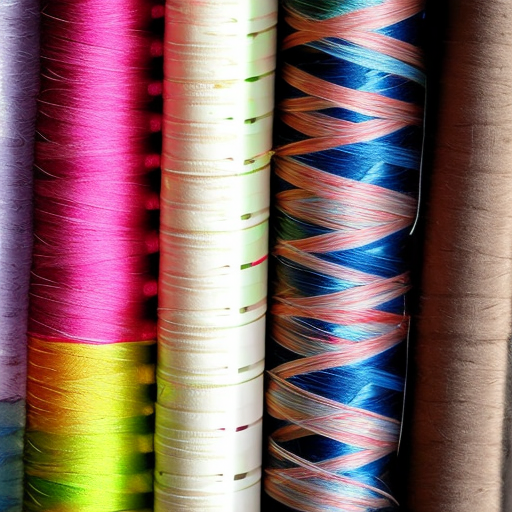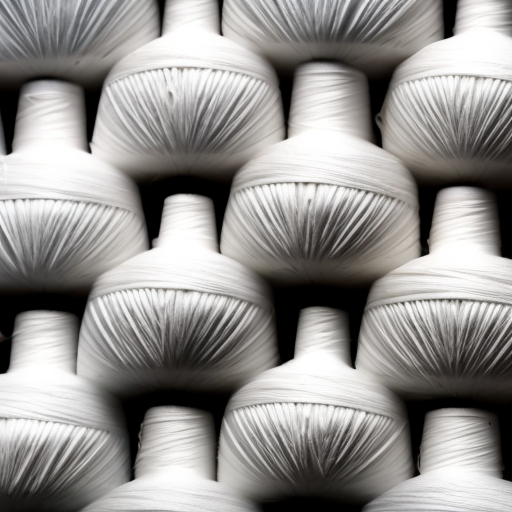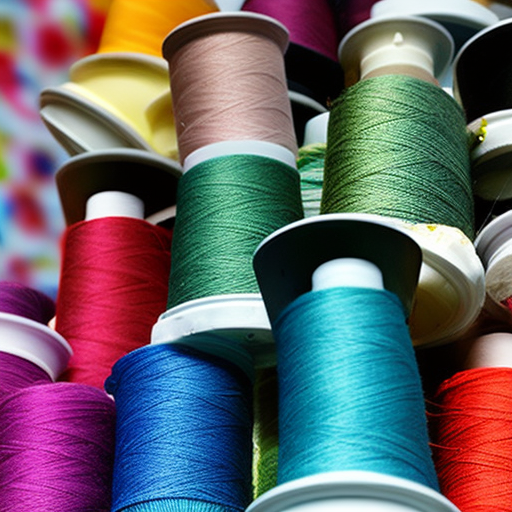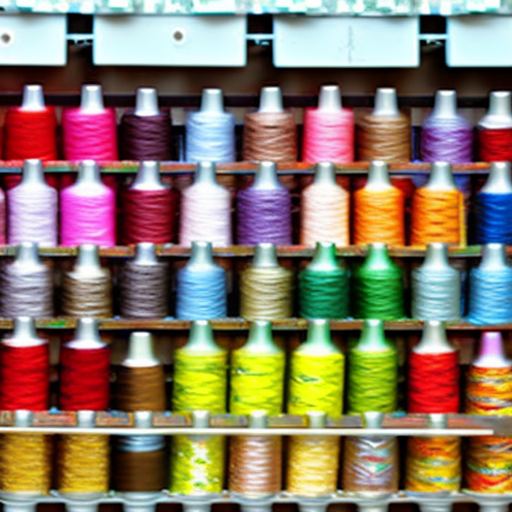
Sewing thread is an essential component when it comes to stitching fabrics together. Whether you are a professional tailor, quilter, or just someone who likes DIY projects, choosing the right thread can have a significant impact on the strength, durability, and overall appearance of your sewing project.
Types of Sewing Thread
There are various types of sewing threads available in the market, each designed to cater to different sewing needs. Here are a few common types:
- Cotton Thread: Made from natural cotton fibers, this type of thread is widely used for general sewing purposes. It is suitable for a range of fabrics, from lightweight to medium weight.
- Polyester Thread: Known for its high tensile strength and durability, polyester thread is an excellent choice for projects that require strong seams, such as upholstery, outdoor gear, and heavy-duty fabrics.
- Nylon Thread: Nylon thread is incredibly strong and resistant to abrasion, making it ideal for sewing leather, canvas, and other heavy materials. It is also commonly used in the production of bags, shoes, and other accessories.
- Embroidery Thread: Specifically designed for decorative stitching, embroidery thread is available in various colors and finishes. It adds flair and elegance to garments, home decor items, and personalized gifts.
Sewing Thread Comparison
| Thread Type | Strength | Usage | Durability |
|---|---|---|---|
| Cotton Thread | Medium | General sewing | Good |
| Polyester Thread | High | Heavy-duty fabrics, upholstery | Excellent |
| Nylon Thread | Very high | Leather, canvas, heavy materials | Superior |
| Embroidery Thread | Varies | Decorative stitching | Varies |
Choosing the Right Thread
The choice of sewing thread depends on the type of fabric, the intended use of the finished product, and personal preference. It is essential to consider factors such as strength, durability, and color compatibility.
For general sewing and lightweight fabrics, cotton thread is a go-to option. Polyester thread is a versatile choice that offers excellent durability. Nylon thread is perfect for heavy-duty projects and materials that require extra strength. Embroidery thread, with its wide color range, enhances decorative stitching.

Remember to select the appropriate thread weight (thickness) as well. Thicker threads are ideal for heavy fabrics, while finer threads work better with delicate materials. Take time to read the thread labels and consider the recommendations provided by the thread manufacturer.
In Conclusion
When it comes to choosing sewing thread, understanding the characteristics and specific needs of your sewing projects is crucial. By selecting the right thread type, you can ensure the longevity and quality of your creations.
So next time you embark on a sewing adventure, take a moment to evaluate your requirements and make an informed decision when it comes to sewing thread selection. Happy stitching!





Great advice!
Nancy V: What a helpful tip!
Great advice and a helpful tip! Sewing Thread is an essential component for any successful sewing project, and it can be a challenge to decide which thread to use. With this post, you can make an informed decision and get the best results!
So helpful!
Great post! Really useful information.